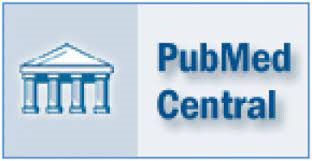Identification of a Novel IGSF1 Variant in Two Malaysian Male Siblings with Central Hypothyroidism and Macroorchidism
Yee Lin Lee1, Tzer Hwu Ting1, Chong Teik Lim2, Karuppiah Thilakavathy4, Nurul Huda Musa2, King Hwa Ling41Paediatric Endocrine Unit, Department of Paediatrics, Faculty of Medicine and Health Sciences, Universiti Putra Malaysia, 43400 Serdang, Selangor, Malaysia2Department of Biomedical Science, Faculty of Medicine and Health Sciences, Universiti Putra Malaysia, 43400 Serdang, Selangor, Malaysia
3Malaysian Research Institute on Ageing (MyAgeing), Universiti Putra Malaysia, 43400 UPM Serdang, Selangor, Malaysia
4Department of Biomedical Science, Faculty of Medicine and Health Sciences, Universiti Putra Malaysia, 43400 Serdang, Selangor, Malaysia and Malaysian Research Institute on Ageing (MyAgeing), Universiti Putra Malaysia, 43400 UPM Serdang, Selangor, Malaysia
IGSF1 mutation is the commonest cause of mild to moderate isolated central congenital hypothyroidism and has an X-linked recessive inheritance, primarily affecting males. Other notable clinical features are macroorchidism with delayed pubertal testosterone rise, large birth weight, increased body mass index, low prolactin, transient growth hormone deficiency and low prolactin. Two male siblings with central hypothyroidism were found to have a novel IGSF1 c.3467T>A variant that was likely pathogenic based on the family segregation study. The proband, aged 3 years presented at 18 days old with prolonged jaundice while his 16-year-old brother was only detected to have central hypothyroidism after the probands genetic analysis result was known. Both siblings were obese, had large birth weights, macroorchidism and low prolactin. The probands brother had intellectual disability while the proband had normal development. This case study highlights the importance of evaluation for the IGSF1 variant in patients with unexplained central hypothyroidism, especially when accompanied by X-linked inheritance and macroorchidism. Family segregation analysis allows detection of other affected family members or carriers who may also benefit from thyroxine treatment.
Keywords: IGSF1 variant, central hypothyroidism, macroorchidismCorresponding Author: Yee Lin Lee, Malaysia
Manuscript Language: English



























